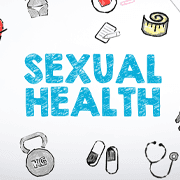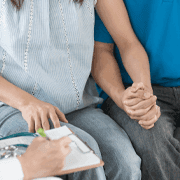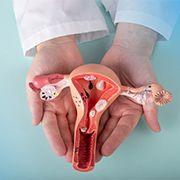What Does Early Pregnancy Cramping Feel Like?
In This Article
What Does Early Pregnancy Cramping Feel Like?
Elena
Updated on August 17, 2024
Medically verified by Dr. Arya
Fact checked by Sreemoyee

Wellness
10 minutes
Among these concerns, many expectant mothers worry about early pregnancy cramping. What does it feel like? Is it normal? Should you be worried?
Karepedia is here to help you with just that.
This blog aims to provide a comprehensive yet easy-to-understand guide on early pregnancy cramping.
Understanding Early Pregnancy Cramping
Cramping during early pregnancy is quite common and usually not a cause for concern. These cramps are often a sign that your body is preparing for the months ahead and adjusting to the new life growing inside you.
What Do Early Pregnancy Cramps Feel Like?
Early pregnancy cramps can vary from person to person, but they often share some common characteristics. Here’s what you might experience:
- Mild Discomfort: Early pregnancy cramps typically feel like mild discomfort in the lower abdomen. They are often compared to menstrual cramps but are usually less intense.
- Tugging or Pulling Sensation: You might feel a tugging or pulling sensation in your lower abdomen. This is due to the uterus expanding and the ligaments stretching to accommodate the growing baby.
- Dull Ache: A dull ache in the lower abdomen or back is common. It can feel like the kind of ache you might experience before or during your period.
- Intermittent Pain: The cramping might not be constant. You may notice it coming and going, often triggered by changes in position or physical activity.
 10mint
10mintSexual Health Matters: How To Maintain Your Sexual Health ?
 10mint
10mintYour Guide to Sexual Health Screening and Preventive Measures
 10 mints
10 mintsSTDs in Women: Comprehensive Guide on Symptoms and Treatments
Get a Callback Now
Causes of Early Pregnancy Cramping
Understanding the causes of these cramps can help alleviate some of your worries. Here are the primary reasons behind early pregnancy cramping:
- Implantation: When the fertilized egg implants itself into the lining of the uterus, it can cause mild cramping and sometimes spotting. This usually occurs around 6-12 days after conception.
- Uterus Expansion: As your uterus begins to expand to make room for your growing baby, you may experience cramping. This is a normal part of pregnancy as your body adjusts.
- Hormonal Changes: The surge in pregnancy hormones, particularly progesterone, can lead to cramping. These hormones help to relax the muscles and ligaments, making it easier for your body to accommodate the pregnancy.
- Digestive Changes: Pregnancy can slow down your digestive system, leading to bloating, gas, and constipation, which can cause cramping.
When to Worry About Early Pregnancy Cramping
While cramping in early pregnancy is usually normal, there are certain signs that should prompt you to seek medical advice:
- Severe Pain: If the cramping is severe or persistent, it could be a sign of something more serious, like an ectopic pregnancy or miscarriage.
- Bleeding: Light spotting is common in early pregnancy, but heavy bleeding or passing clots along with cramping is a cause for concern.
- Fever: A fever along with cramping could indicate an infection, which requires medical attention.
- Shoulder Pain: Severe shoulder pain along with cramping can be a sign of an ectopic pregnancy, a condition where the fertilised egg implants outside the uterus, usually in a fallopian tube.
Tips to Relieve Early Pregnancy Cramping
If you're experiencing mild cramping, there are several ways to alleviate the discomfort:
- Rest: Sometimes, simply resting can help reduce cramping. Find a comfortable position and try to relax.
- Hydration: Drink plenty of water. Dehydration can cause cramping, so keeping hydrated is essential.
- Warm Compress: Applying a warm (not hot) compress to your lower abdomen can help soothe the cramps.
- Gentle Exercise: Light activities like walking or prenatal yoga can help alleviate cramps and improve circulation.
- Dietary Changes: Eating smaller, more frequent meals and avoiding foods that cause gas and bloating can help reduce digestive-related cramping.
Some Questions Related to Early Pregnancy Cramping
How long do early pregnancy cramps last?
Early pregnancy cramps can last from a few minutes to a few hours. They might come and go over several weeks as your body adjusts to the pregnancy.
Can stress cause cramping in early pregnancy?
Yes, stress can contribute to cramping. Stress can lead to muscle tension and digestive issues, both of which can cause cramping. Finding ways to relax and manage stress is important.
Should I be worried about cramping if I have a history of miscarriages?
If you have a history of miscarriages, it's natural to be more concerned about cramping.
While mild cramping is usually normal, it's always a good idea to consult with your healthcare provider for personalized advice and reassurance.
Are there any activities I should avoid if I'm experiencing cramps?
While mild cramping is usually not a cause for alarm, it's wise to avoid strenuous activities or heavy lifting if you are experiencing discomfort.
Gentle exercise is beneficial, but listen to your body and avoid anything that exacerbates the cramps.
Early pregnancy cramping is a common experience for many expectant mothers.
While it can be uncomfortable and sometimes worrying, it's usually a normal part of the pregnancy process as your body adapts to support your growing baby.
However, it's essential to be aware of the signs that indicate a need for medical attention and to consult with your healthcare provider if you have any concerns.
Remember, every pregnancy is unique, and what's normal for one person may not be for another.
Trust your instincts and seek advice when needed to ensure a healthy and happy pregnancy journey.
Early pregnancy cramping is common and usually not a cause for concern.
Cramps often feel like mild menstrual discomfort.
A tugging or pulling sensation in the lower abdomen is typical.
A dull ache in the lower abdomen or back is also common.
Cramps may come and go intermittently.
Implantation can cause mild cramping and spotting.
Uterus expansion to accommodate the baby can lead to cramping.
Hormonal changes, especially progesterone, can cause cramps.
Digestive changes, such as bloating and constipation, can contribute to cramping.
Severe pain could indicate a more serious issue, like an ectopic pregnancy.
Heavy bleeding or passing clots along with cramps requires medical attention.
A fever with cramping might indicate an infection.
Severe shoulder pain and cramping can be a sign of an ectopic pregnancy.
Rest can help alleviate mild cramping.
Staying hydrated is essential to reduce cramps.
A warm compress on the lower abdomen can soothe discomfort.
Gentle exercise, like walking or prenatal yoga, can help.
Eating smaller, more frequent meals can reduce digestive-related cramping.
Stress can cause cramping, so managing stress is important.
Consult your healthcare provider if you have any concerns about cramping.
Source Links
MedicalNewsToday
Healthline

